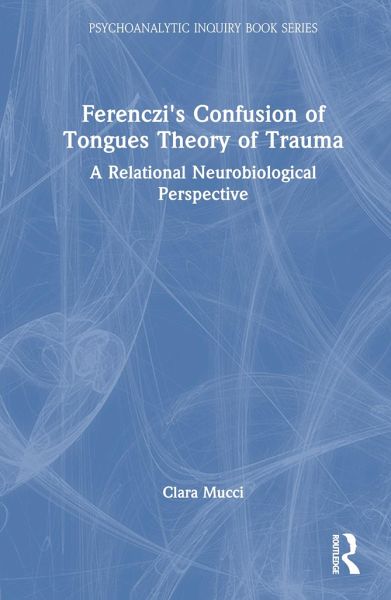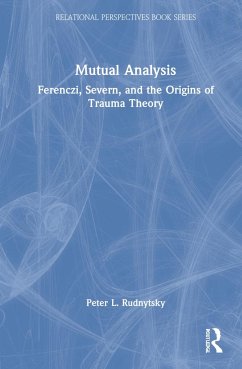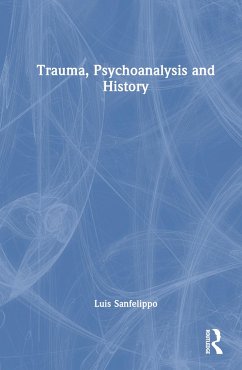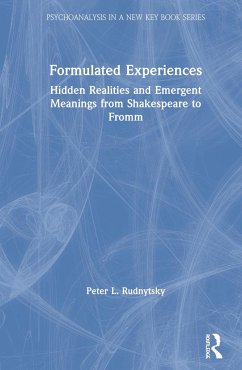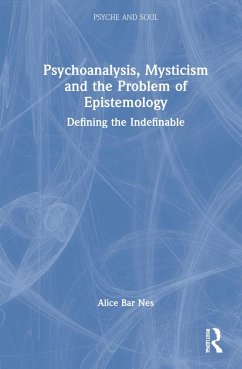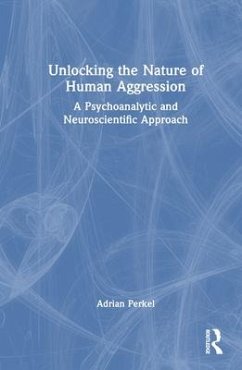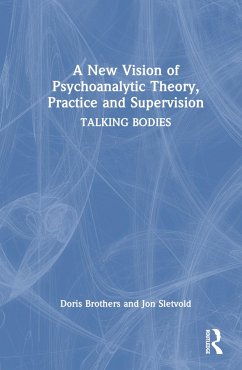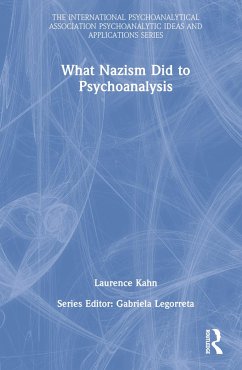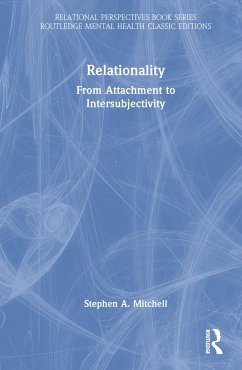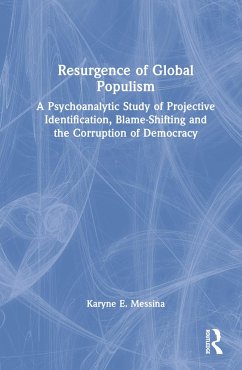Ferenczi's Confusion of Tongues Theory of Trauma
A Relational Neurobiological Perspective
Versandkostenfrei!
Versandfertig in 1-2 Wochen
Weitere Ausgaben:

PAYBACK Punkte
77 °P sammeln!





Arnold Wm. Rachman and Clara Mucci provide a detailed examination of the significance of Sàndor Ferenczi's paradigm-shifting theory of trauma, the Confusion of Tongues, and confirm its relevance for the psychoanalytic theory and analysis of trauma today.
Arnold Wm. Rachman, PhD, is a clinical psychologist and relational psychoanalyst who has contributed to the recovery of the life and work of Sándor Ferenczi and the Budapest School of Psychoanalysis. Clara Mucci, PhD, professor of Psychodynamic Psychology at the University of Bergamo, Italy, is the author of several books on Shakespeare, psychoanalysis, trauma and personality disorders.
Produktdetails
- Verlag: Routledge
- Seitenzahl: 258
- Erscheinungstermin: 7. September 2023
- Englisch
- Abmessung: 240mm x 161mm x 19mm
- Gewicht: 555g
- ISBN-13: 9781032207469
- ISBN-10: 1032207469
- Artikelnr.: 68099638
Herstellerkennzeichnung
Libri GmbH
Europaallee 1
36244 Bad Hersfeld
gpsr@libri.de
'In Sàndor Ferenczi's Confusion of Tongues Theory of Trauma, Arnold Rachman and Clara Mucci take us into the origin and genius of Ferenczi's concept of the "Confusion of Tongues," Ferenczi's insight into the trauma of child sexual abuse in the origins of psychopathology, and Freud's campaign against Ferenczi's ideas. The book is a rich, erudite, and close-up view into Ferenczi's contributions and the intellectual climate of that era.'
Beatrice Beebe, New York State Psychiatric Institute, Columbia University Medical Center
'Rachmann and Mucci pull together in this slim heavy-hitting volume a masterful account of the complicated intense relationship between Sandor Ferenczi and Sigmund Freud. They show how
Beatrice Beebe, New York State Psychiatric Institute, Columbia University Medical Center
'Rachmann and Mucci pull together in this slim heavy-hitting volume a masterful account of the complicated intense relationship between Sandor Ferenczi and Sigmund Freud. They show how
Mehr anzeigen
Ferenczi, with his 'confusion of tongues paradigm' - an all-embracing term for dissociation and splitting defenses, that takes account of the disturbingly large number of adults who suffered abuse / trauma perpetrated against them by adults when they were children. Freud knew all of this in the 1890s when his 'affect/trauma model' of psychopathology was advanced. But Freud moved on and modified his own ideas in the direction of codifying the principle of psychosexual development and children's incest wishes, turning his back on patients' actual traumatic experiences. Ferenczi in the early 1920s essentially, and increasingly, feuded with Freud, or rather Freud feuded with Ferenczi who told Freud more-or-less, 'you did your best work 25 years ago, prior to you taking a dreadful wrong turn into the psychosexual stages, and advancement of the oedipal complex as a core influence upon the child.' For Freud, this was a threat to his authority, and Ferenczi was cast by Freud as a 'pathological liar' while Ferenczi perceived Freud as given to 'emotional blindness' with respect to the actual high level of experiences of child sexual, physical and emotional abuse among patients seeking treatment. Children are often targets of incestuous attacks, but children arguably do NOT have incestuous wishes. This painful but important chapter in the history of psychoanalysis has been reported on by others before, but Rachmann and Mucci achieve a masterful integration of sources to articulate a clinical view of trauma that resonates deeply with our contemporary world. Diverse case histories and explorations into literature (e.g. Kafka) add substance to this important volume. Social workers, counsellors, psychologists, and psychoanalysts wishing to fine tune their trauma-informed understanding will be well-served by reading this volume.'
Howard Steel is professor of Psychology, director of Graduate Studies, and co-director (with Miriam Steele) of the Center for Attachment Research at the New School for Social Research, New York
'This far reaching and deep exploration of Ferenczi's classic paper, "Confusion of Tongues," brings scholarship and understanding of this contribution to psychoanalysis to a new level of detail and specificity. A powerful addition to our appreciation of what Ferenczi has meant to psychoanalysis, and to the crucial role of trauma in character formation and development.'
Adrienne Harris, faculty and supervisor at both New York University and the Psychoanalytic Institute of Northern California
Howard Steel is professor of Psychology, director of Graduate Studies, and co-director (with Miriam Steele) of the Center for Attachment Research at the New School for Social Research, New York
'This far reaching and deep exploration of Ferenczi's classic paper, "Confusion of Tongues," brings scholarship and understanding of this contribution to psychoanalysis to a new level of detail and specificity. A powerful addition to our appreciation of what Ferenczi has meant to psychoanalysis, and to the crucial role of trauma in character formation and development.'
Adrienne Harris, faculty and supervisor at both New York University and the Psychoanalytic Institute of Northern California
Schließen
Für dieses Produkt wurde noch keine Bewertung abgegeben. Wir würden uns sehr freuen, wenn du die erste Bewertung schreibst!
Eine Bewertung schreiben
Eine Bewertung schreiben
Andere Kunden interessierten sich für



